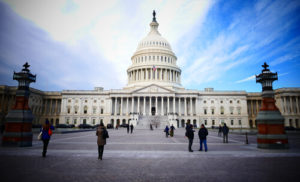Fate of Health Bill Uncertain, a G.O.P. Leader Promises a Vote
 By the C|C Whistleblower Lawyer Team
By the C|C Whistleblower Lawyer Team
Senator John Cornyn of Texas, the number two Senate Republican, said Sunday on Meet the Press “I believe as soon as we have a full contingent of senators, that we’ll have that vote.” Senator Cornyn was referring to a vote on the replacement plan for the Affordable Care Act. Last week Senate Majority Leader Mitch McConnell announced a vote on the bill would be delayed pending Senator John McCain’s recovery from a craniotomy to remove a blood clot above his left eye.
Multiple Senators have expressed hesitation at approving the new healthcare bill despite new amendments aimed at pleasing the conservative bloc of the Republican caucus. Two Republican Senators, Rand Paul of Kentucky and Susan Collins of Maine, have already come out in opposition of the bill for different reasons. Senator Paul believes the new Republican bill maintains too much of the Affordable Care Act. Senator Collins has concerns over the cuts to Medicaid funding.
Vice President Mike Pence assured governors that the Republican bill strengthens and sustains Medicaid for those most in need. Many governors were skeptical of the Vice President’s claims and Senator Collins publicly stated that she respectfully disagrees with the Vice President’s assessment. Senator Collins said “[t]his bill would impose fundamental, sweeping changes in the Medicaid program, and those include very deep cuts.” Republicans can only afford to lose two of the fifty-two Republican Senators in order to pass the bill and with Senators Paul and Collins already opposed, the Republican leaders cannot lose any more votes if they have any hope of the bill passing.
If the Republican bill passes and the sweeping Medicaid cuts take effect, there is the potential for an effect on False Claims Act cases involving Medicaid fraud. Lower funds for the program will undoubtedly lead to fewer claims over time as many Medicaid recipients could potentially face caps on coverage depending on how the various states administer their programs. Fraudsters may see Medicaid false claims as less lucrative because of the diminished potential for receiving funds by billing the government high amounts. For any of the potential scenarios to occur the bill must first pass the Senate, be reconciled with the House bill, and be signed by the President. Therefore, the road ahead is still a long one before any significant changes will occur.